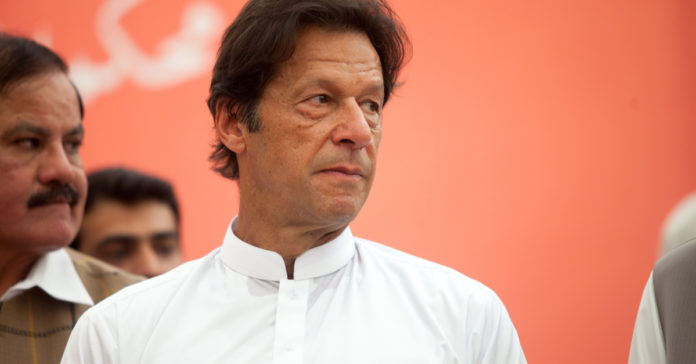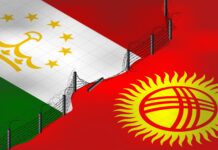Pakistani Prime Minister Imran Khan has said his country will not recognise Israel until there is a Palestinian state acceptable to the Palestinians.
In an interview with Dunya News, Khan said that Islamabad would not follow suit in recognising Israel as a state after the United Arab Emirates struck a deal last week to normalise ties with Israel.
“Whatever any country does, our position is very clear. And our position was made clear by [Pakistan’s founder] Quaid-e-Azam Muhammad Ali Jinnah … in 1948: that we cannot ever accept Israel as long as Palestinians are not given their rights and there is no just settlement,” Khan said.
“Our stance is very clear; as Quaid-e-Azam Muhammad Ali Jinnah said, Pakistan will never recognise Israel until Palestinians are given their right of a just settlement.”
Khan said if Pakistan accepted Israel and ignored the oppression of the Palestinians “we will have to give up Kashmir as well then,” adding that this was not something Pakistan could do.
“When you talk of Israel and Palestine, we need to think, will we be able to answer [God] if we abandon those people who have faced every kind of injustice and whose rights were taken away? My own conscience will never allow me to do this, I can never accept it,” Khan said.
While public opinion around the Muslim world is overwhelmingly hostile to the deal, official reaction from Muslim countries and international organisations has been mixed.
Subscribe to our newsletter and stay updated on the latest news and updates from around the Muslim world!
The Palestinians have denounced the accord with President Mahmoud Abbas saying the deal was a “betrayal of Jerusalem, Al-Aqsa and the Palestinian cause.” And Hamas said the agreement encourages the occupation [by Israel] to continue its denial of the rights of our Palestinian people, and even to continue its crimes against our people.
Muslim reaction
Other prominent Muslim nations to denounce the accord include Iran and Turkey.
Iranian President Hassan Rouhani decried the deal as a “huge mistake.” “The Emirate rulers think that if they approach America and the Zionist regime, their security will improve and their economy will grow,” Rouhani said. “But this is totally wrong.”
The Iranian foreign ministry denounced the deal as an act of “strategic stupidity from Abu Dhabi and Tel Aviv”.
“The oppressed people of Palestine and all the free nations of the world will never forgive the normalising of relations with the criminal Israeli occupation regime and the complicity in its crimes,” a ministry statement said. “This is stabbing the Palestinians in the back and will strengthen the regional unity against the Zionist regime.”
And Turkey said history will not forget and never forgive the “hypocritical behaviour” of the United Arab Emirates in agreeing to a deal with Israel to normalise relations.
The Palestinian people and administration were right to react strongly against the agreement, the foreign ministry said. “History and the conscience of the region’s peoples will not forget and never forgive this hypocritical behaviour of the UAE, betraying the Palestinian cause for the sake of its narrow interests,” it said in a statement.
On the other hand, Muslim nations and organisations (such as the Organization of Islamic Cooperation and the Arab League) allied with Saudi Arabia either did not comment on the deal or supported it.
Jordan said that the UAE-Israel deal could push forward stalled peace negotiations if it succeeds in prodding Israel to accept a Palestinian state on land that Israel had occupied in the 1967 Arab-Israeli War.
Egyptian President Abdel Fattah el-Sisi, a close ally of the UAE, welcomed the agreement. “I followed with interest and appreciation the joint statement between the United States, United Arab Emirates and Israel to halt the Israeli annexation of Palestinian lands and taking steps to bring peace in the Middle East,” el-Sisi said on Twitter.
The Gulf state of Bahrain welcomed the accord between the UAE and Israel, state news agency BNA said. Bahrain also praised the United States for its efforts towards securing the deal.
And Oman said it backed the normalisation of ties between the neighbouring United Arab Emirates and Israel, and hoped the move would help achieve a lasting Middle East peace.






















